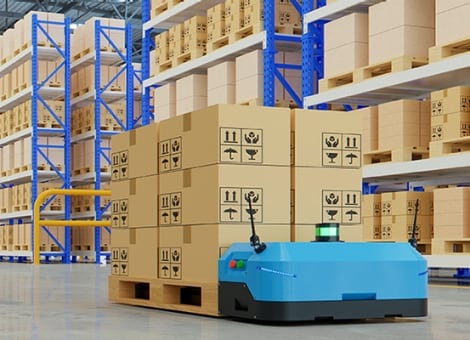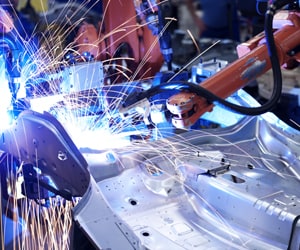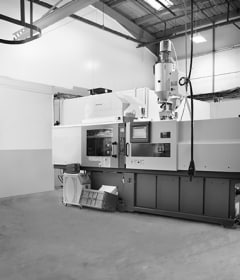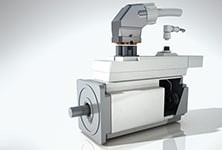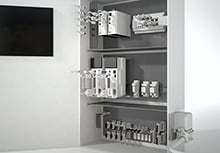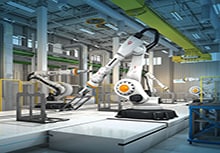The future calls for fully automated, end-to-end connection solutions. Let’s transform the way the world makes things—beyond sensors and connectors. Together, we can move the world forward.

TE Insights on Technology Trends
Integrating and automating the global economy
What is Industrial Automation?
Accelerating the Next Industrial Revolution. In industrial facilities and on offshore platforms around the world, a bold vision for automating and integrating complex production processes is taking shape. Increasingly, manufacturers are looking to integrate digital technologies that increase flexibility, improve efficiency, prevent unexpected downtimes, and accelerate production. At the center of this evolution, known at Industry 4.0, is interoperability, an opportunity to create customer value by enabling reliable machine-to-machine (M2M) capabilities, deep learning from manufacturing processes, and greater control of innovative technology, including robotic systems and automated guided vehicles (AGVs).
Insights on Automation in Smart Manufacturing
Integrating systems across production
At TE, we design and manufacture the connectivity and sensors solutions that make the internet-enabled smart factory possible. Our broad portfolio of solutions enables manufacturers to operate factory machines and offshore equipment that can share data across platforms, predict maintenance requirements, automate complex repeatable processes, and coordinate always-on, on-demand operations, transforming mass-production facilities into customized-manufacturing factories and subsea platforms into real-time exploration and production networks. a
HAPPENING NOW
Featured White Paper:
Smarter Factories in the Future
Manufacturers need more flexibility while achieving new production efficiencies. By running a digital factory, they can significantly increase productivity through robust end-to-end machine connectivity. Learn how TE's data, power, and signal solutions are enabling manufacturers to achieve new efficiencies in logistics, maintenance, tool management, and predictive analysis.
RECENTLY PUBLISHED INSIGHTS
Industry Insights:
Reports from Leading Experts
-
Next-Generation Operational Excellence
From McKinsey & Company: "The time is now to revisit the foundations of operational excellence, while applying technology, digital, and analytics to accelerate operations and make them faster, smarter, and more resilient. Centered on continuous improvement and high performance to drive productivity and resilience, operational excellence across an entire organization is built on a shared understanding and commitment to mission and values for all stakeholders."
Featured White Paper:
Analog and Digital Transducers — The Advantages of Both
Most sensing begins in the analog world. Over the past two decades, sensors and transducers have moved from purely analog operation to digital protocols, signal processing, and interfaces. As a result, analog and digital transducers are worlds apart in their technologies, interfaces,
output signals, and the terminology used to describe and specify their operation.
Today, digital prevails in many application spaces. But there are many application areas, such as high EMI/RFI environments, where an analog transducer will always surpass a digital approach. Learn about our M3200 industrial pressure transducer – available in either an analog or digital configuration, and engineered to deliver key advantages.
DOWNLOAD OUR WHITE PAPER (English)
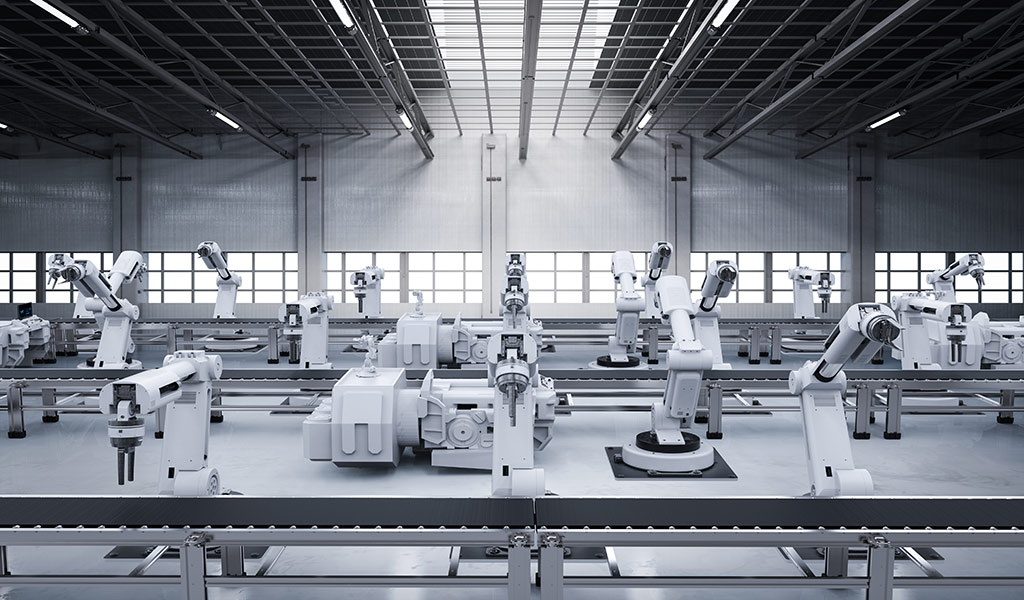
In industrial facilities and on offshore platforms around the world, manufacturers are looking to integrate digital technologies that increase flexibility, improve efficiency, prevent unexpected downtimes, and accelerate production.


